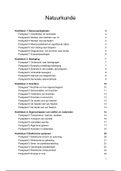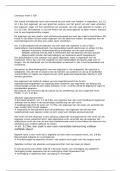Dr. Philip Paiement & Prof. Dr. Han Somsen
Course Goals
• Describe and explain comparative and transnational methods for studying legal systems, including both
legislative and adjudicatory aspects of legal systems.
• Apply the basic methodology of comparative law to critically analyze and evaluate transboundary legal
problems
• Describe and explain the vertical relationships between national, regional (i.e. EU) and international legal
systems
• Apply their knowledge of the vertical relationships between legal systems to critically analyze and develop
strategies for solving transboundary legal problems
Lecture 1 | 07 February 2019 | Two organizing concepts
Adjudication: agenda setting > legislation & policy making > implementation > enforcement > agenda setting > etc.
The complexity of tobacco
• “Tobacco is the only legal consumer product which kills people when it is used entirely as intended.” – The
Oxford Medical Companion (1994)
• Worldwide, 3 million individuals die prematurely per year as a result of smoking (WHO)
• Cigarette smoke is toxic, carcinogenic & mutagenic. This is caused by the combustion of the chemicals added
to cigarettes, including arsenic and tar.
o “We don’t accept the idea that there are harmful agents in tobacco.” – Philip Morris, 1964
• Nicotine is an addictive substance. While a majority of smokers wish to quit, only 5% are capable of doing so
for a period of six months.
o “The definition of addiction is wide and varied. People are addicted to the Internet. Others are
addicted to shopping, sex, tea and coffee. The line I would take is that tobacco isn’t addictive but
habit forming.”(J Carlisle, TMA, 1998)
• 60% of smokers start by the age of 13, 90% by the age of 20 (WHO)
o “A cigarette for the beginners is a symbolic act. I am no longer my mother’s child. I’m tough, I am
and adventurer, I’m not square… As the force from the psychological symbolism subsides, the
pharmacological effect takes over to sustain the habit.” (Philip Morris, 1969)
• Non-smokers living in a household with a smoker have and overall 23% increased risk of heart disease
(WHO)
o “There is no statistical evidence linking passive smoking to lung cancer.” (TMA, 1998)
• How does the law regulate this situation?
• How have legislators, public authorities & regulators, and attorneys regulated tobacco products?
• Brainstorm?
o Who are involved in the production, sales, consumption and consequences of tobacco products?
o In what way does the law shape their involvement?
o What fields of law contribute to tobacco regulation?
,Horizontal & vertical interaction between legal systems
Horizontal relationships (comparative law)
Comparative law
• Why are legal comparisons important for the study of global law
• In what various methods can one compare legal systems?
• What challenges are posed by legal comparison?
• What skills are required to conduct legal comparisons?
Comparative law between Positive & Natural Law
• Positive law (Austin): Law is the order (or command) of a sovereign backed by a threat of sanction in the
event of non-compliance.
o “The existence of law is one thing; its merit or demerit is another. Whether it be or be not is one
enquiry; whether it be or be not conformable to an assumed standard, is a different enquiry. A law,
which actually exists, is a law, though we happen to dislike it, or though it vary from the text, by
which we regulate our approbation and disapprobation.”
• Natural Law (Cicero)
o “True law is right reason in agreement with nature; it is of universal application, unchanging and
everlasting; it summons to duty by its commands, and averts from wrongdoing by its prohibitions…
We cannot be freed from its obligations by senate or people, and we need not look outside ourselves
for an expounder or interpreter of it. And there will not be different laws at Rome and at Athens, or
different laws now and in the future, but one eternal and unchangeable law will be valid for all nations
and all times…”
• How do these two perspectives impact the comparison of laws?
Why compare law?
• Sentimentalism (at the international level): the prospect of achieving peace among nations; convergence and
unification of national laws.
• Naturalism (‘pure knowledge and understanding’): The pursuit of perfection
• Practicalism (in the national context): Imitating, adopting and reforming a nation’s laws; achieving better
knowledge of rules and institutions and how they work in particular contexts
• Explaining variations
o What is the variation, and what are its consequences?
o Why is there a variation, and what does it tell us about the socio-cultural context?
,Universalism
Universalism in historical perspective
• The Stoics on natural law
o Nature is governed by reason
o Natural law arises out of human reasoning
o Natural law corresponds to moral duties
o Universal character of Nature & Reason
• Structure of natural law
o Higher-order principles
o Lower-order rules
• Aristotle:
o Synesis: good judgment in framing rules
o Gnome: good judgment in deciding cases
Universalism in historical perspective
• Aquinas & universalism under Christianity
o 4 types of law (Eternal, Natural, Divine, Human)
o Authority of positive law rooted in natural law
o Plurality of human laws supplementing universal natural law
• “The jurisprudence of all countries is much the same in its fundamental principles. Strip it of its technical
terminology and the differences in great measure disappear… The master of legal principle who has a mind
large enough to be free form provincialism is, therefore, in all cases the best kind of judge.” – Lord Haldane
(1900)
Diagraming universalism
The dark sides of universal reasoning
• Universalism in the colonial context
o Johnson v M’Intosh, 21 U.S. (8 Wheat.) 543 (1823) “However extravagant the pretension of
converting the discovery of an inhabited country into conquest may appear; if the principle has been
asserted in the first instance, and afterwards sustained; if a country has been acquired and held under
, it; if the property of the great mass of the community originates in it, it becomes the law of the land
and cannot be questioned. So, too, with respect to the concomitant principle that the Indian
inhabitants are to be considered merely as occupants, to be protected, indeed, while in peace, in
the possession of their lands, but to be deemed incapable of transferring the absolute title to
others. However this restriction may be opposed to natural right, and to the usages of civilized
nations, yet if it be indispensable to that system under which the country has been settled, and be
adapted to the actual condition of the two people, it may perhaps be supported by reason, and
certainly cannot be rejected by courts of justice.”
Functionalism
• Praesumptio similitudinis & relationship to universalism (presumption of similarity)
o Emphasis on functional similarities. All legal systems face similar functional demands.
• Begin with functional question about a socio-economic problem
o Tertium comparationis: broad < > narrow
• Analyzing beyond positive law where behavior dictates that
o Non-legal forms of social ordering
• Analyzing foreign systems?
o Internal vs. external perspectives
• Which and how many countries to compare?
Comparative law & the problems of language
• Comparative law’s main challenge: “translating the linguistic expressions that denote legal concepts”>
maintaining conceptual consistency while translating across systems with their own vocabularies
• Types of scenarios
o Same term in same language, but different concept
o Equivalent terms in different languages, but different concepts
o Foreign concept without an equivalent linguistic term
o Translated linguistic terms carry value significance (positive, negative) that might not exist in original
language
o Nominalism – the noun (zn) takes on significance greater than the common meaning of the word
o Meaning of a word given by authority differs from meaning given by society at large, judges, lawyers
o Legal concepts that were previously ‘artificially introduced’ into foreign legal system
Comparative Law & the Tertium comparationis
• Votes of (no) confidence – in the UK
o December 2018 – Prime Minister Theresa May’s ‘Motion of Confidence’
▪ Customary basis
o January 2019 – Opposition leader Jeremy Corbyn’s ‘Vote of No Confidence’
▪ Legislative basis (Fixed-Term Parliaments Act 2011)









